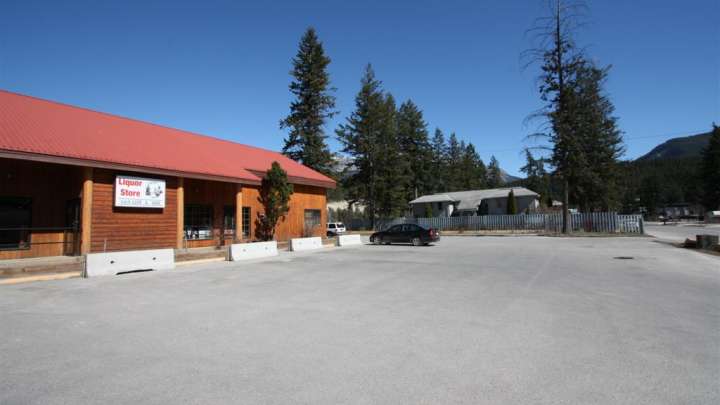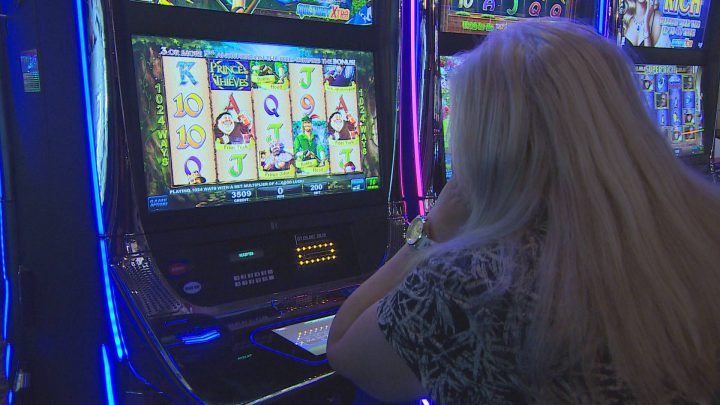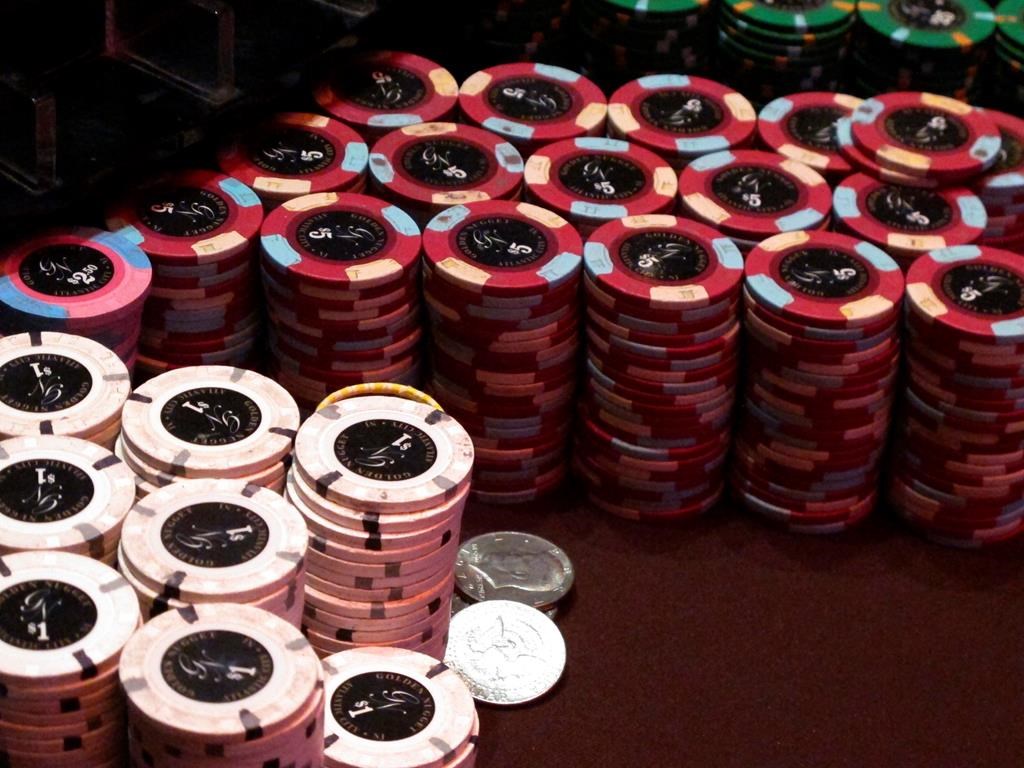Vlts In Bc

BCLC in collaboration with our casino service providers submitted our heath and safety plans to re-open the B.C casino industry to WorkSafeBC and the Provincial Health Officer. When we have approval to re-open gambling facilities, we will do so with appropriate measures in place to support the health and wellbeing of our players, employees and communities.
For example, this may mean reconfiguring seating at slot machines and table games to ensure a two-metre distance between players to support physical-distancing at B.C. casinos. Physical barriers (such as plexi-glass) will be installed where this is not possible or where casino employees, such as dealers or cash-cage staff, must interact with players. Casino employees will monitor capacity to support physical distancing at all times.
Concentrations of VLTs are categorized differently than other VLT establishments. For example, in Alberta, they are referred to as Gaming Entertainment Centres (GECs), while in New Brunswick they are categorized under the brand name, Coasters. Availability of VLT Gambling in Canadian Hospitality Venues.
Frequent hand sanitization will be recommended. In fact, BCLC and our casino service providers will provide free hand sanitizer to players and refill stations will be located throughout our facilities.
Volts In Car Battery
Ongoing sanitization of touch points and gambling equipment, such as chips, will occur. To minimize touch points, we are also planning that the types of table games offered will change to allow only games in which cards can be dealt face up, and that players will not be permitted to touch cards.
- Even without VLTs in Ontario or British Columbia, they’re behind billions in local governments’ annual revenue. A new casino is opening in Ontario in 2021 The Pickering Resort-Casino was slated for a 2020 opening, but the COVID-19 pandemic slightly postponed the big reveal. Canadians will soon have access to more than 2,000 slots, 167 live.
- British Columbia's health officer says the province is at a critical period in the pandemic. 'We are not through the storm yet,' Dr. Bonnie Henry said.
- British Columbia uses the term “VLTs” to refer to such gaming machines present outside of traditional gaming facilities (usually in pubs and bars). Where are slot machines and VLTs allowed in B.C.? The Province only allows slot machines in certain legal gaming venues (casinos, community gaming centres and race tracks). The Province does.
Casino staff will be required to complete detailed training about enhanced sanitation requirements and new physical-distancing protocols.
British Columbia’s Liquor & Cannabis Regulation Branch defines gaming (also called gambling) “as playing or gaming, for money or other stakes, on an uncertain event; it involves chance and the hope of gaining something more than the amount paid to participate.” This definition can be found in the Liquor Primary and Food Primary Terms and Conditions.
Generally speaking, only very limited forms of gaming are permitted in pubs and bars in British Columbia. Slot machines (VLTS) for example are only permitted in licensed gaming venues such as casinos and race tracks. Unlicensed gaming pools, including those associated with major sporting events, are prohibited under the Criminal Code of Canada.
Gaming is not allowed in restaurants inBritish Columbia (with the exception of licensed ticket raffles).
Vlts In Bc Weather
Although the Liquor & Cannabis Regulation Branch has policies that relate to gaming, licensees in British Columbia should bear in mind that it is Gaming Policy and Enforcement Branch (GPEB) that regulates all gambling in British Columbia, ensures the integrity of gambling industry companies, people and equipment, and investigates allegations of wrongdoing. This includes regulatory oversight of the British Columbia Lottery Corporation (BCLC) (which conducts and manages lotteries, casinos and commercial bingo halls), all gambling services providers and gambling workers, B.C.’s horse racing industry and licensed gambling events. GPEB also manages provincial responsible gambling programs.
GPEB carries out its activities under the provincial Gaming Control Act and Gaming Control Regulations and the Criminal Code.
Sowhat is gaming?
Section 197(1) of the Criminal Code defines “game” as “a game of chance or mixed chance and skill.”
The Ontario Court of Appeal’s recent decision in Play for Fun Studios Inc. v. Ontario (Alcohol and Gaming Commission of Ontario) provides some useful analysis of these concepts in the context of a touch-screen terminal based game played in almost 200 bars in Ontario.
Play for Fun Studios Inc. is the owner of the GotSkill gaming system and had obtained a declaration that GotSkill was not a “game” as that term is defined in the Criminal Code. Ontario’s Registrar of Alcohol, Gaming and Racing successfully appealed that decision, obtaining from the Court of Appeal a declaration that GotSkill is a game of mixed chance and skill, and thus a “game” under the Criminal Code.

The game at issue involves players wagering tokens against a randomly predetermined “potential next win” and completing a “skill task” that consists of stopping a moving cursor as close to the desired target as possible. The “potential next win” portion of the game is determined entirely by chance. The “skill task” outcome depends entirely on the player’s hand-eye coordination. The functionality of the GotSkill game is set out in considerable detail in the Court’s reasons for judgment which can be read in full here.
Drawing on the Supreme Court of Canada jurisprudence on the issue, the Ontario Court of Appeal confirmed that when faced with a question of whether or not a game is one of mixed chance and skill the court must determine whether the game involves a “systematic resort to chance” to determine outcomes, not merely the “unpredictables” (factors external to the game itself) that may occasionally defeat skill. This analysis is to be undertaken from the perspective of the player. Moreover, any game that is based on mixed chance and skill will fall within the definition of a game in the Criminal Code, regardless of which element is dominant. In other words, as long as there is any element of chance, the game will meet the definition in the Code.
A Supreme Court of Canada decision from 1968, Ross et al v. The Queen provides a useful example of this framework applied to the criminal prosecution of the officers of a bridge and social club.
In Ross the court observed that the hands of each of the four players in contract bridge are determined by chance, but afterwards the outcome of the game depends in substantial measure upon the skill of the players in bidding and in playing their hands. Importantly, though the expert evidence admitted at trial confirmed that “the element of skill significantly outweighed the element of chance” that was not relevant to the court’s analysis. The court held that a consideration of whether skill was “dominant” over chance would “deprive of any effect the words ‘or mixed chance and skill’” in the Criminal Code and “would be contrary to Parliament’s clearly expressed intention.” It was clear, wrote Justice Pigeon, “that Parliament intended to avoid the uncertainties involved in determining what is the dominant element and deliberately chose to include in the definition of ‘game’ all mixed games as well as games of chance.”
Volts In Battery
The Court of Appeal confirmed that even though playing GotSkill involved the application of skill – potentially even to a significant degree – this was not sufficient to place the operation of the game outside of the scope of the Criminal Code.
If you are considering putting or permitting games in your establishment that could be considered games of chance, or mixed chance and skill, Alcohol & Advocacy recommends that you contact legal counsel or British Columbia’s Gaming Policy and Enforcement Branch before doing so.

*Alcohol & Advocacy publishes articles for information purposes only. They are not a substitute for legal advice, and persons requiring such advice should consult legal counsel.



